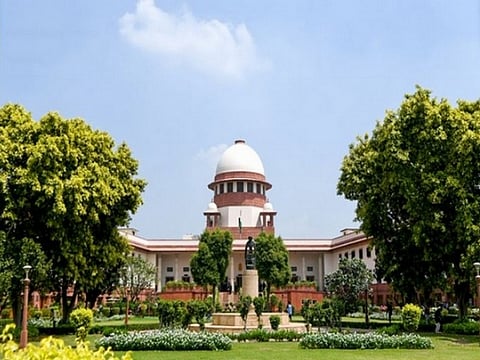

NEW DELHI: The Supreme Court on Tuesday said that the state governments have not fulfilled their responsibilities in ensuring affordable medical care and infrastructure to patients. The observation was made in response to a PIL against the practice of private hospitals compelling patients to buy medicines from the in-house stores. It also stressed that any mandatory direction by it may hamper the functioning of private hospitals and have a cascading effect.
The top court was hearing a Public Interest Litigation (PIL) filed by Siddharth Dalmia, arguing that private hospitals were compelling patients, and their families, to buy medicines, implants, and other medical care items from in-house pharmacies that imposed exorbitant mark-ups.
A two-judge bench of Justices Justice Surya Kant and N Kotiswar Singh asked the Union and State governments to prepare some policies to ensure preventing the exploitation of patients and their families in private hospitals.
“It is states’ failure to deliver reasonably-priced medicines, particularly in case of essential drugs, for people from poorer sections of society. This failure facilitated and promoted private hospitals to force patients/ patients relatives to purchase medicines from in-house pharmacies,” it observed. Making a scathing criticism of states’ failure to deliver reasonably-priced medicines, the court expressed its strongest displeasure and concern over this practice of private hospitals.
Dalmia cited personal experience of exploitation when a relative underwent extensive treatment at a private hospital. Hearing this, the bench observed that governments must also be sensitised to the issue of unreasonable charges and financial exploitation in the private healthcare sector.
The court also, however, cautioned against excessively stringent regulations, warning that an unreasonable stance against private hospitals could deter private investment in the healthcare sector.
Dalmia’s plea sought direction to private hospitals to not compel the patients to purchase only from the hospital pharmacies and alleged also that the Centre and states had failed to take regulatory and correctional measures, as a result of which patients are being exploited. The top court said, “We agree with you... but how to regulate this?”.
The court noted it is the duty of states to ensure proper medical care, and observed also that some states had not been able to deliver the requisite medical care and, therefore, had “facilitated and promoted private entities”.
Also in top court
Not enough judges to hear POCSO cases
The SC said there were not enough judges in trial courts to implement its directions like setting up of a special court in each district to exclusively deal with sexual offences against children under the POCSO law. A bench was hearing a suo motu case of 2019 titled: “In Re Alarming Rise in the Number of Reported Child Rape Incidents”.
7 elevated as judges in two high courts
Seven additional judges -- four from the Madras High Court and three from the Bombay High Court -- were on Tuesday elevated as permanent judges. One additional judge of the Bombay High Court was given a fresh one year term as an additional judge with effect from August 12, the law ministry said.